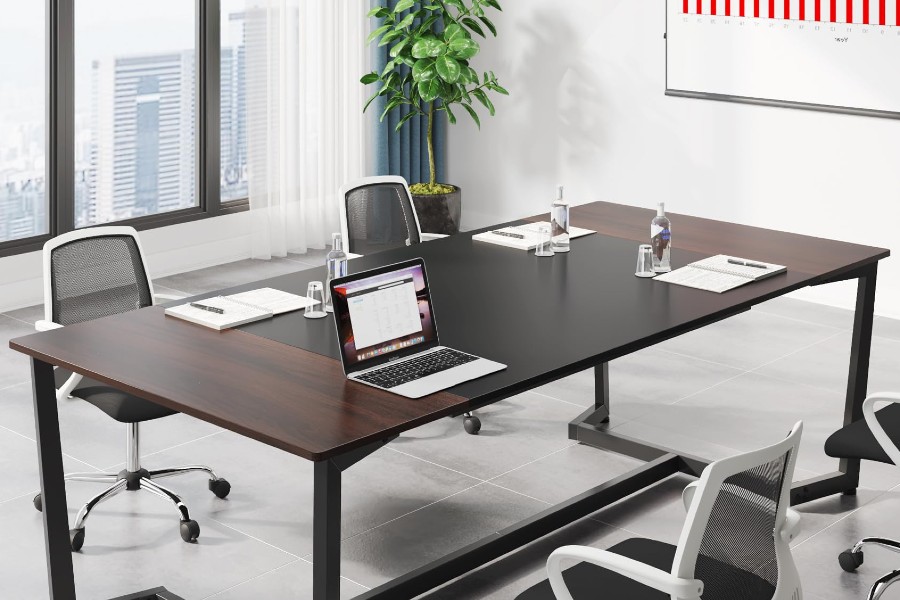
Organizing an event can feel like a balancing act.
You have to juggle a million decisions, from the date and speaker lineups to catering options and the overall experience for attendees. One of the most critical choices you’ll make is selecting the right venue. The venue sets the stage for everything else and can significantly impact the success of your event. If you’re considering a party venue in Houston, TX, or anywhere else, here are some important things to keep in mind to help you make the best decision.
Consider Your Event’s Purpose and Goals
Before you even start looking at venues, take a step back and think about the purpose of your event. What are you trying to achieve? Are you hosting a corporate conference, a wedding, a fundraiser, or a community festival? Your event’s goals will guide you in selecting the right venue.
- Identify Your Audience: Understanding your audience is key. If your event is aimed at professionals, you might want a sleek, modern venue that reflects a professional atmosphere. For a wedding, a romantic and charming location might be more appropriate.
- Align with Your Theme: Your venue should align with your event’s theme and tone. A venue that complements your theme can elevate the overall experience for attendees.
Capacity and Layout: Fit Matters
Next, think about the capacity of the venue. It’s crucial to choose a space that can comfortably accommodate your expected number of guests. A venue that’s too small will feel cramped, while one that’s too large can make the event feel empty.
- Plan for Different Layouts: Different types of events require different layouts. A corporate seminar may need theater-style seating, while a networking event might benefit from a more open layout. Ensure the venue can be configured to suit your event’s needs.
- Flexibility in Space: Look for venues that offer flexibility in their spaces. If your event has multiple activities or sessions, a venue that can adapt will make your planning easier. This can also include breakout rooms for smaller discussions or workshops.
Location, Location, Location
The location of your venue plays a huge role in the overall experience for your attendees. Here are a few things to consider when evaluating potential venues:
- Accessibility: Choose a location that is easy for your attendees to get to. Consider proximity to public transportation and parking options. If attendees need to travel from out of town, nearby hotels can be a plus.
- Surrounding Attractions: A venue that’s close to restaurants, shops, or entertainment options can enhance the experience for your guests. If they have some downtime, they’ll appreciate being able to explore the area.
- Safety and Security: The safety of your guests should always be a priority. Research the safety of the neighborhood where the venue is located. Make sure there are adequate security measures in place, especially for larger events.
Amenities and Technical Capabilities
A great venue goes beyond just the physical space. It should offer the necessary amenities and technical capabilities to support your event.
- Audio-Visual Equipment: Make sure the venue is equipped with high-quality audio-visual equipment. This includes sound systems, projectors, and screens. If you’re planning on having speakers or presentations, these elements are crucial for delivering content effectively.
- Internet Connectivity: In our digital age, reliable internet access is a must. Check if the venue offers high-speed Wi-Fi and whether it can accommodate the number of devices that will be connected during your event.
- Catering Options: Consider whether the venue provides in-house catering or allows you to bring in your own caterer. Having a flexible catering option can help you better align the menu with your event’s theme and dietary restrictions of your guests.
Cost and Budget Considerations
Your budget will significantly influence your choice of venue. It’s essential to have a clear understanding of your financial limits before you start looking at options.
- Transparent Pricing: Ensure that the venue provides clear information about their pricing structure. Are there additional fees for equipment, cleaning, or security? Understanding the full cost upfront can help you avoid surprises later on.
- Value for Money: While it may be tempting to go for the cheapest option, consider the value you’re getting for your money. A venue that offers great service and amenities may be worth the extra cost.
- Deposit and Payment Terms: Check the venue’s deposit requirements and payment schedule. Make sure these terms fit within your overall budget and timeline.
Communication and Support
Good communication with the venue’s staff is crucial. The relationship you build with the venue will impact your planning process and the event itself.
- Staff Responsiveness: When reaching out to potential venues, pay attention to how responsive they are. Prompt communication can indicate that they value customer service and will support you throughout the planning process.
- On-Site Support: Ask if the venue provides on-site support during the event. Having someone available to handle any issues that arise can be invaluable and allow you to focus on your guests.
Conduct a Site Visit
Once you’ve narrowed down your choices, schedule a site visit to each venue. This step is essential for several reasons:
- Get a Feel for the Space: Pictures can be misleading. Walking through the venue allows you to visualize how your event will fit into the space and assess its suitability.
- Assess the Atmosphere: The vibe of the venue is important. Does it match your event’s theme? Is it welcoming and comfortable for your guests?
- Check Facilities: During your visit, take the time to check out the facilities, including restrooms, kitchen areas, and any other amenities that will impact your event.
Gather Feedback from Past Clients
Before making a final decision, do your homework. Look for reviews and testimonials from previous clients who have hosted events at the venues you’re considering.
- Seek Recommendations: If possible, reach out to others who have used the venue for similar events. Their experiences can provide valuable insights and help you make a more informed choice.
- Check Online Reviews: Look at reviews on platforms like Google, Yelp, or social media. Pay attention to common themes in the feedback, whether they’re positive or negative.
Final Thoughts: Take Your Time
Choosing the right event venue is a crucial step in organizing a successful event. By considering your event’s purpose, capacity, location, amenities, budget, and support, you can make a well-informed decision that sets the stage for a memorable experience.
Remember, this decision has the potential to influence every aspect of your event, from the catering and layout to the overall atmosphere. So take your time, do your research, and trust your instincts. With careful consideration, you’ll find a venue that meets your needs and creates a fantastic experience for your attendees!
Recent Posts
- Hoylman-Sigal And Lasher Introduce H.E.L.P. Act To Combat NYC Mental Health Crisis
- Mayor Adams Honors Walker, Morial, Miller, Harlem Flavor And More At Gracie Mansion Conservancy Gala
- Sculpt Toned Arms From Harlem To Hollywood With This Effective Equipment-Free Pilates Workout!
- Why Every Law Firm Needs A Specialized SEO Agency In New York
- Things To Keep In Mind While Selecting Your Event Venue
Become a Harlem Insider!
By submitting this form, you are consenting to receive marketing emails from: . You can revoke your consent to receive emails at any time by using the SafeUnsubscribe® link, found at the bottom of every email. Emails are serviced by Constant Contact








